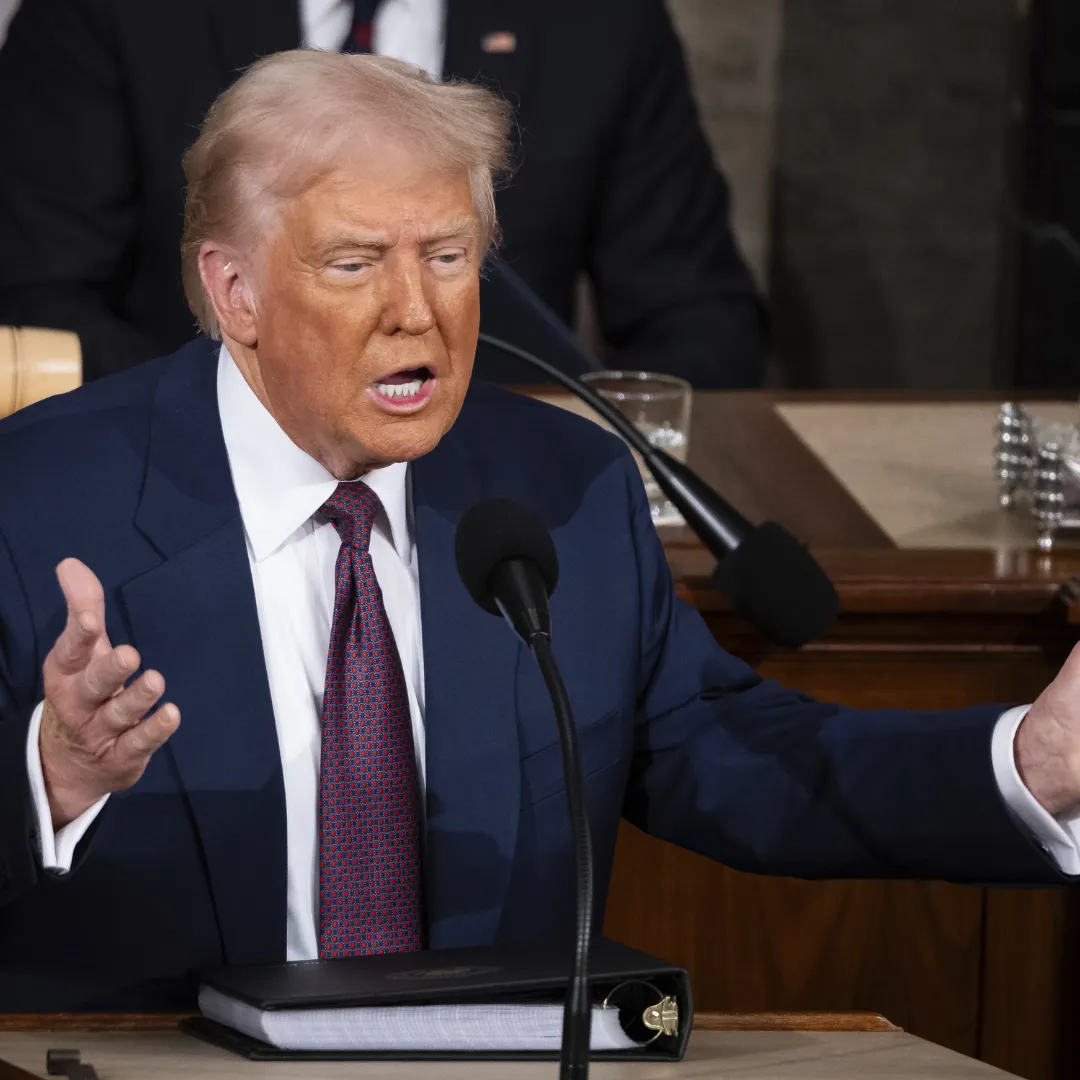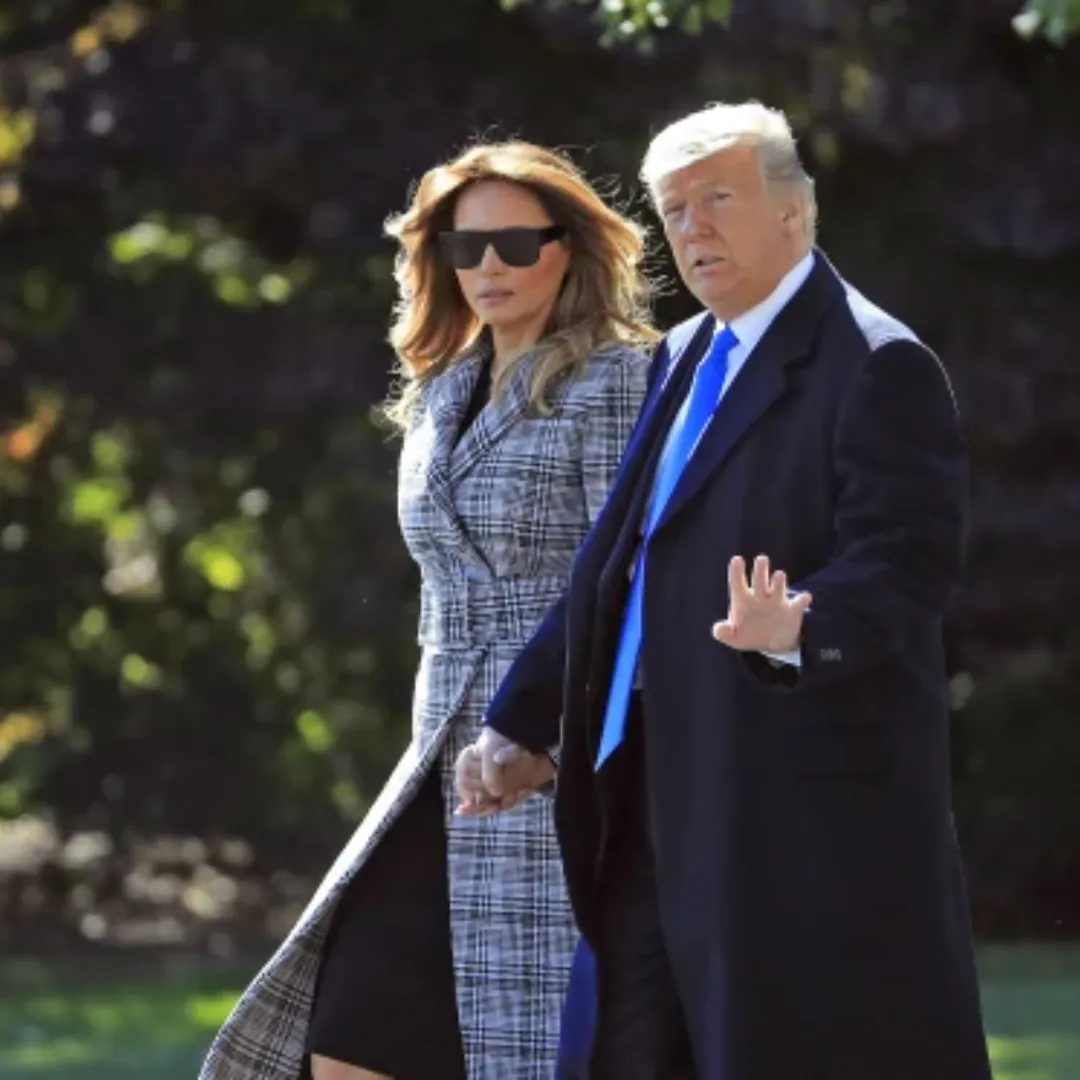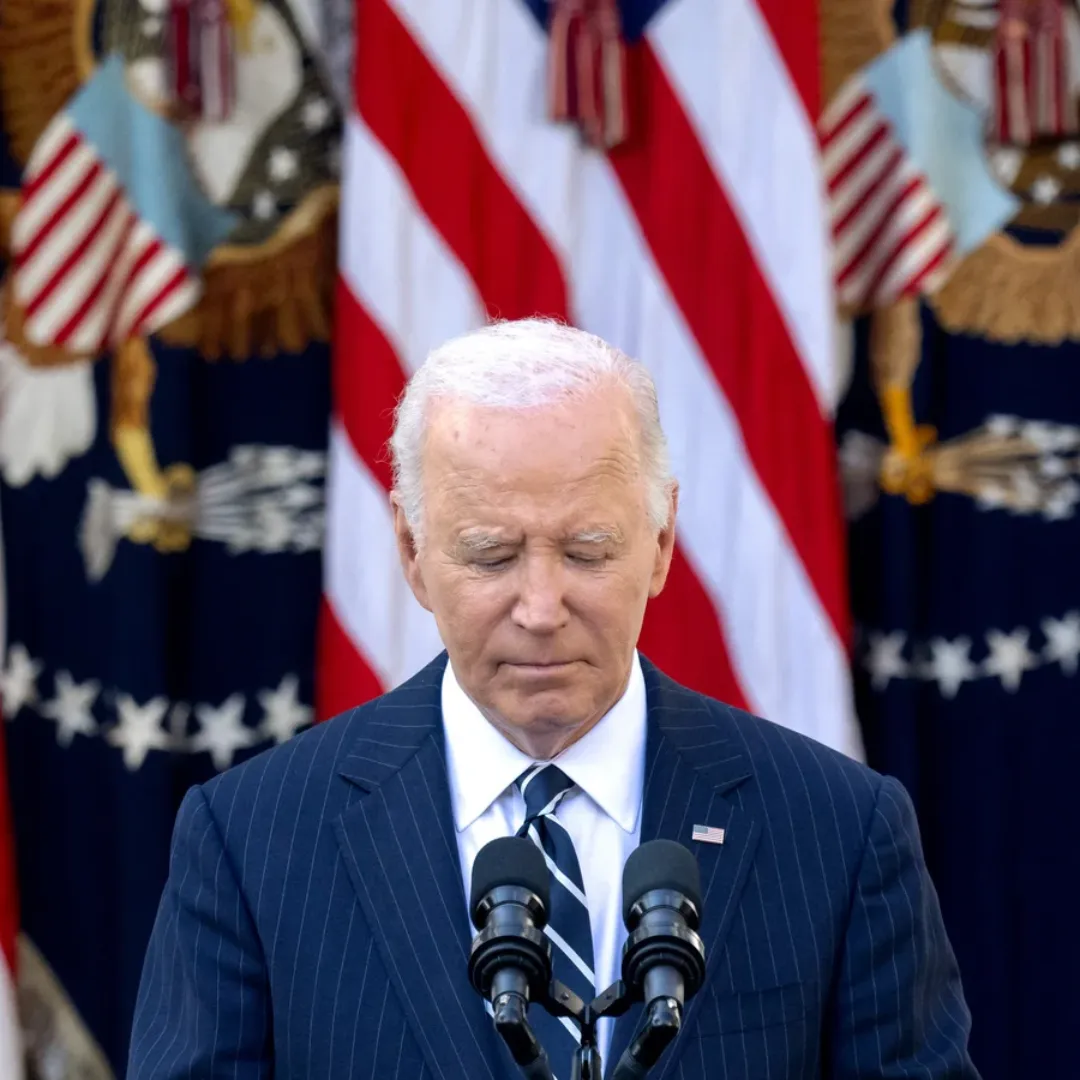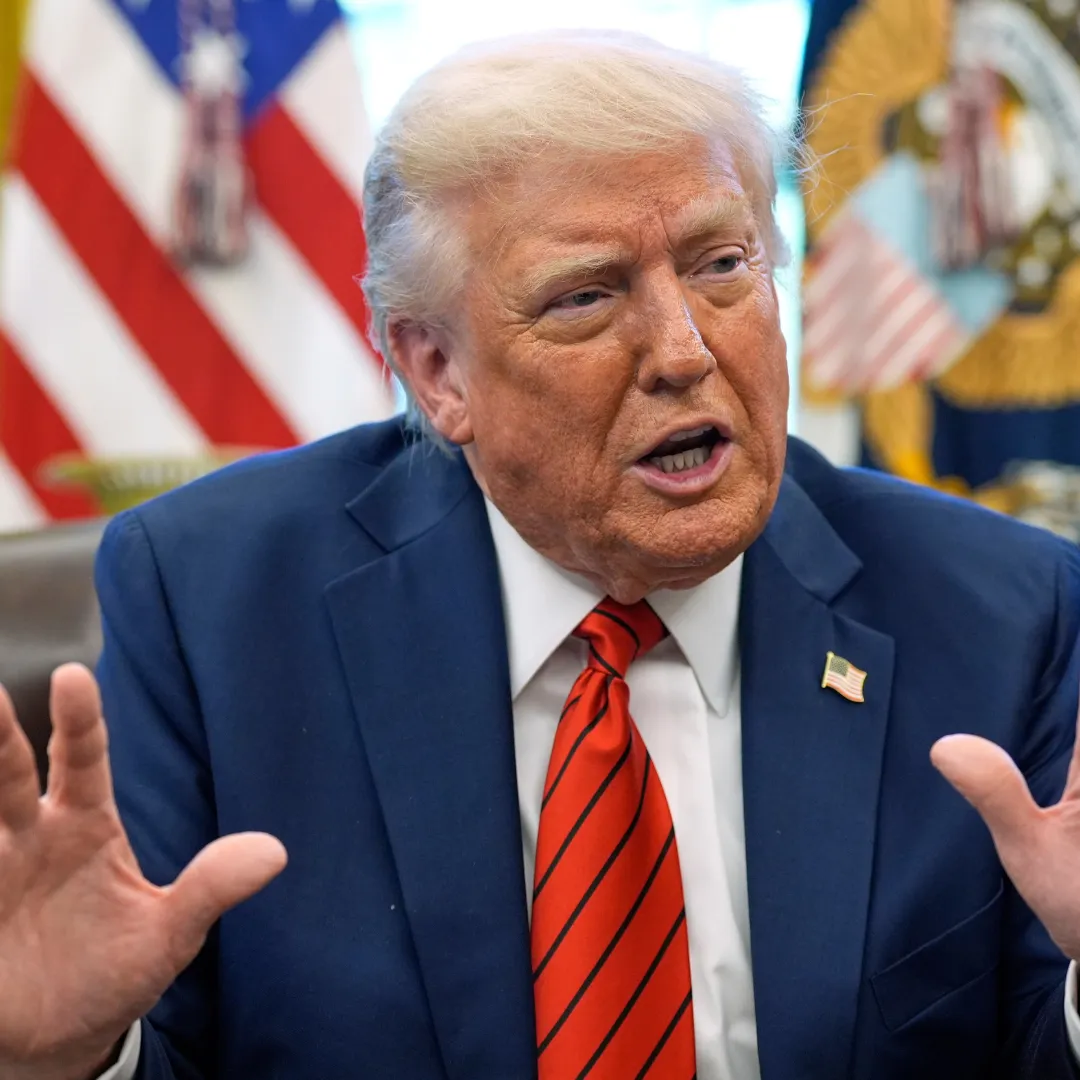
The meeting between South African President Cyril Ramaphosa and U.S. President Donald Trump at the White House on May 21, 2025, was marked by sharp tensions and stark disagreements that laid bare the growing rift between the two nations.
The atmosphere was charged as Trump pushed baseless conspiracy theories about white farmers in South Africa being victims of a systematic genocide. Ramaphosa responded firmly, rejecting these falsehoods and calling on Trump to engage honestly with the realities faced by South Africans.
The encounter exposed not only a clash of narratives but also the diplomatic fallout stemming from Trump’s controversial policies and executive actions against South Africa earlier in the year.
Since February 2025, U.S.-South Africa relations have been severely strained following President Trump’s executive order claiming that white South Africans, especially farmers and Afrikaners, were enduring a “race-based genocide” and systematic government land confiscation.
Based on these false allegations, Trump halted all foreign aid to South Africa and took the drastic step of expelling the country’s Ambassador to the United States, Ebrahim Rasool.
He further inflamed tensions by granting refugee status to over 50 white South Africans, actions widely perceived as politically motivated and deeply offensive to the South African government and its people.
South Africa was also banned from participating in the G20 summit hosted later that year, a move that further isolated the nation on the global stage.
During the Oval Office meeting, Trump repeatedly focused on disproven claims and conspiracy theories about white farmers’ supposed victimization, ignoring efforts by Ramaphosa to correct the record.
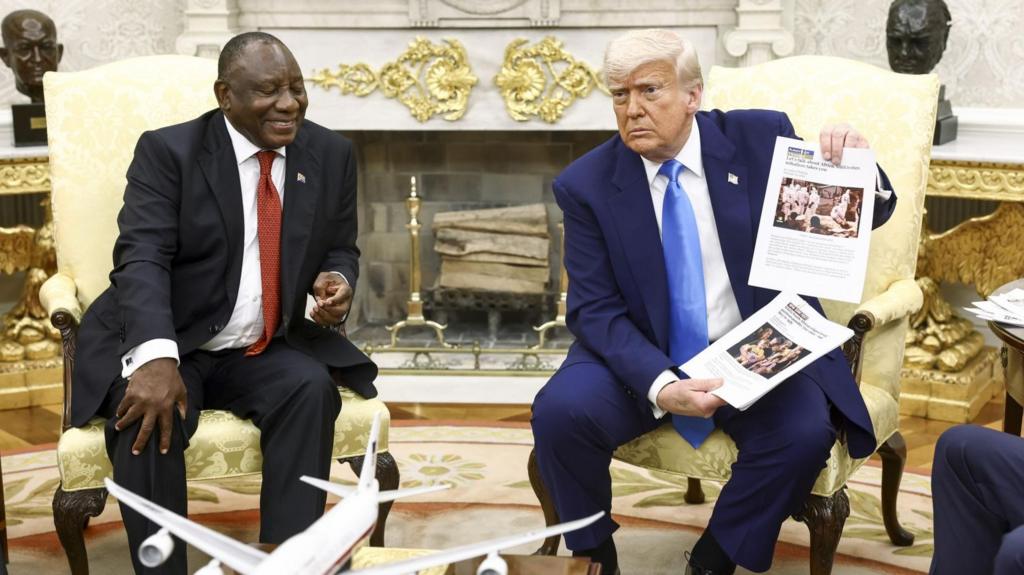
When a reporter asked what evidence would convince Trump that no genocide was occurring, Ramaphosa interjected, stating that the president needed to “listen to the voices of South Africans, some of whom he is good friends with, like those who are here.”
He emphasized the importance of hearing South Africans’ stories and perspectives firsthand, urging Trump to open his mind beyond the misleading information fueling his narrative.
This appeal was especially poignant in light of recent events at the NAMPO agricultural exhibition in Bothaville, Free State—South Africa’s largest agricultural expo—where attendees firmly rejected the genocide claims.
South African courts have also actively blocked the flow of funds to white supremacist groups propagating these conspiracy theories, underscoring that the government does not endorse or tolerate such rhetoric.
Independent investigations both within South Africa and internationally have consistently refuted the idea of targeted racial violence amounting to genocide.
Data from The New York Times reviewed police records between April 2020 and March 2024, revealing that 225 farm murders occurred in that period, with victims spanning racial lines.
Of those, 101 were current or former farm workers—predominantly Black—and 53 were farmers, who tend to be white. This data illustrates the complexity of crime in rural South Africa and dispels simplistic narratives that paint white farmers as exclusive targets.
Despite Ramaphosa’s efforts to present facts and context, Trump seemed unyielding.
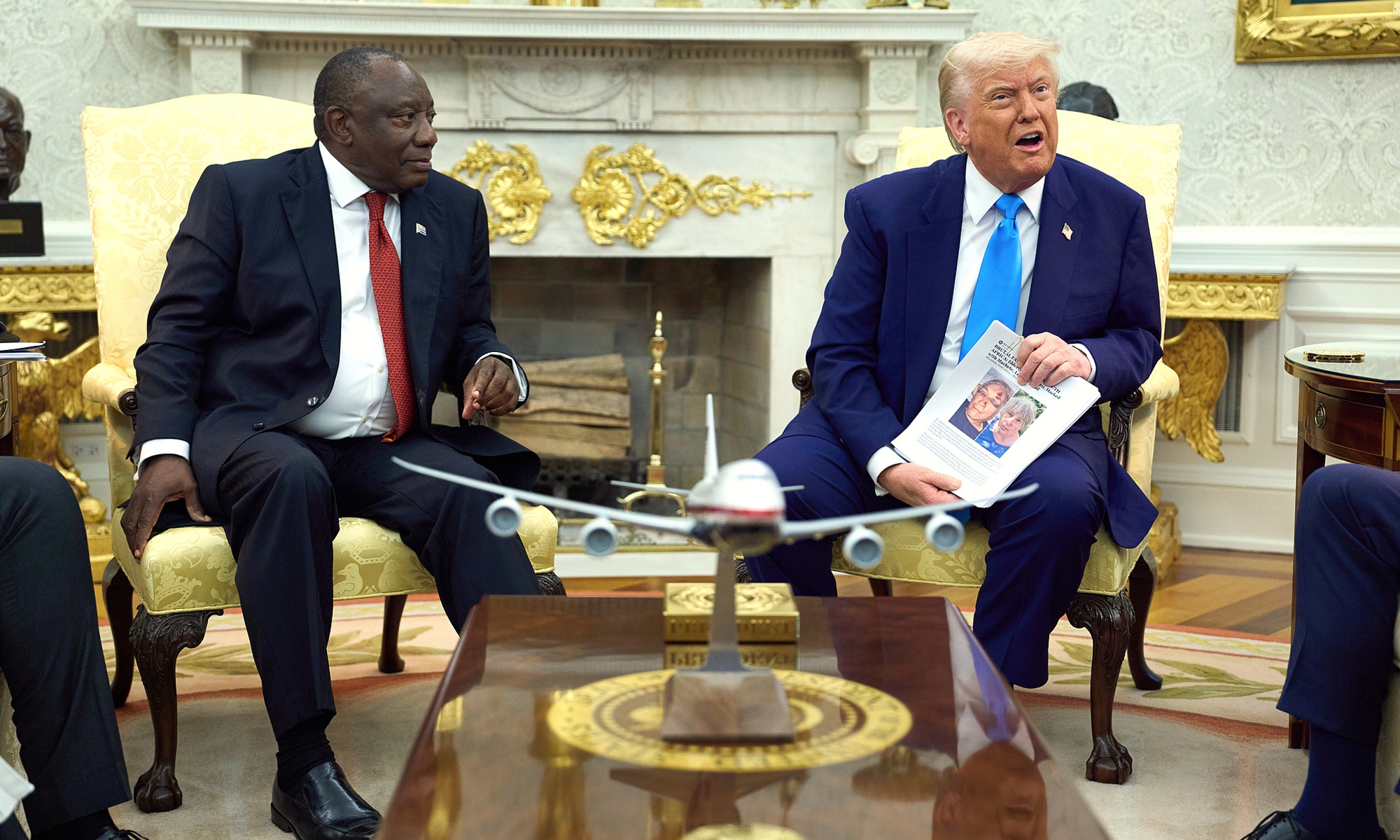
At one point, as Ramaphosa patiently tried to correct the narrative, Trump handed him a thick stack of printed articles concerning white farmer murders, repeatedly emphasizing the word “Death. Death. Death.” while flipping through the papers.
The tension escalated when Trump dimmed the Oval Office lights and played footage featuring members of South Africa’s Economic Freedom Fighters (EFF) party singing the controversial anti-Apartheid song “Kill the Boer,” which has stirred debates over hate speech within South Africa.
Trump also showed social media clips depicting white crucifixes lining a South African highway, purportedly memorializing murdered white farmers.
Ramaphosa responded by questioning the authenticity and location of the imagery, highlighting that such footage did not align with his understanding or experience.
Ramaphosa acknowledged the controversy surrounding the EFF’s song, clarifying that while he personally disagreed with the song’s violent lyrics, the party enjoys constitutional protection under South Africa’s democratic framework.
The government cannot legally suppress the party’s right to free speech despite widespread objections to the song’s content. This point underscored the complexities of balancing freedom of expression with societal sensitivities in a diverse democracy still healing from its apartheid past.
Amid the escalating exchange, Trump grew defensive about reports concerning a $400 million airplane he had accepted from the government of Qatar.
He accused the “fake news” media of focusing unfairly on this story while ignoring what he portrayed as unreported racial violence in South Africa. The Pentagon confirmed receipt of the plane shortly before the meeting, fueling media scrutiny.
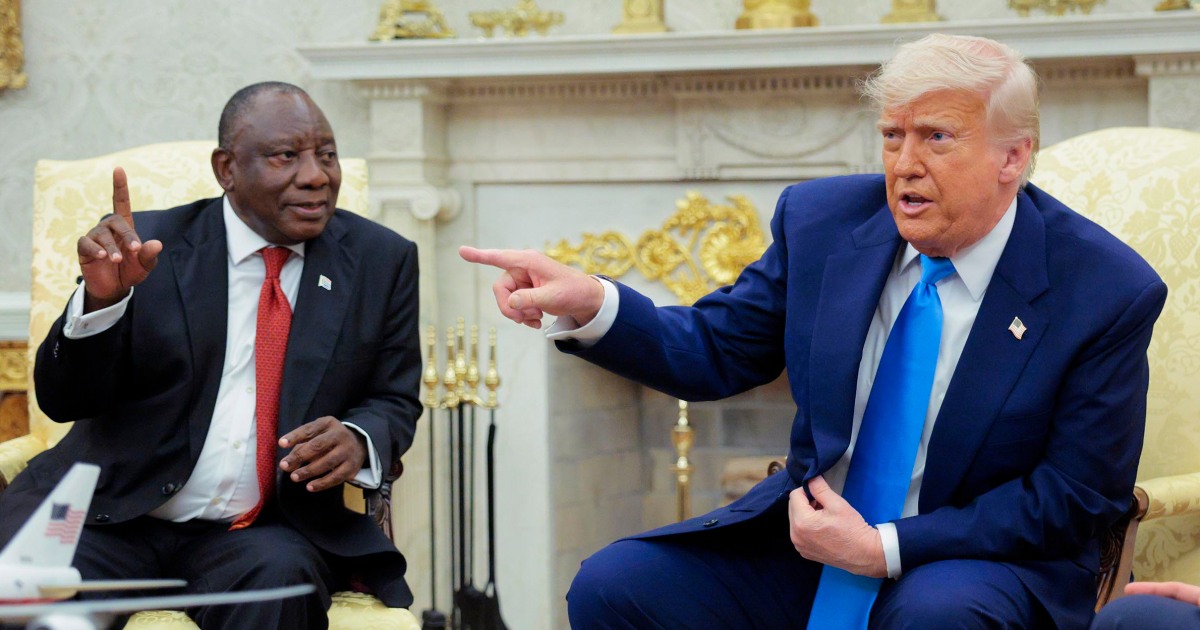
Ramaphosa, visibly exasperated by the turn of the conversation, remarked at one point, “I wish I had a plane to give you.” Trump quickly responded, “I wish you did. I would take it. If your country offered the United States Air Force a plane, I would take it.”
The meeting was further complicated by South African businessman Johann Rupert, who attempted to interject calmly and explain the broader context of crime in South Africa.
Rupert stressed that violence and deaths affect all communities across the country, not only white farmers.
He urged Trump to consider providing technological aid such as drones and Starlink satellite internet—services led by South African-born billionaire Elon Musk—to South African law enforcement to help curb rural crime.
This appeal for practical cooperation highlighted a rare moment of common ground amid the meeting’s largely confrontational tone.
The claims of white genocide in South Africa form part of a long-standing and widely debunked conspiracy theory that has circulated globally, often promoted by white supremacist groups.
It extends beyond South Africa to a broader narrative that posits white populations worldwide face extinction or systemic persecution. Such theories have been repeatedly discredited by researchers and government agencies.

The reality of South African rural crime is complex, involving economic inequality, historical legacies, and widespread violence affecting multiple racial groups.
Trump’s actions in granting refugee status to white South Africans based on these unfounded allegations sparked outrage among South African officials and citizens alike.
Many viewed the move as an insult to South Africa’s sovereignty and a distortion of the nation’s social realities. The decision to expel South Africa’s ambassador further deepened diplomatic wounds and sent a message of disapproval that reverberated through diplomatic circles.
South Africa’s exclusion from the G20 summit was seen as yet another punitive measure that isolated the country from important international dialogue and cooperation.
Throughout the meeting, Ramaphosa maintained a composed and respectful demeanor despite Trump’s persistent focus on controversial and misleading claims.
His interventions demonstrated a commitment to defending South Africa’s image and urging a more nuanced understanding of the nation’s challenges.
Ramaphosa’s insistence that Trump engage with South Africans’ own voices was a call for empathy and listening over unilateral assumptions and politicized narratives.
The meeting at the White House symbolized a significant moment in U.S.-South Africa relations—a relationship complicated by contrasting political perspectives, historical ties, and contemporary global dynamics.

While South Africa has been a key partner on the African continent and in global forums, recent developments have tested this partnership’s resilience.
Observers noted that Trump’s fixation on conspiracy theories and his refusal to acknowledge South Africa’s official findings risked damaging bilateral ties further.
The episode also highlighted the broader dangers of misinformation and the politicization of human rights and social justice issues on the international stage.
The impact of such rhetoric extends beyond diplomatic consequences, influencing public perceptions and fueling divisions.
Moreover, the meeting shed light on the challenges South Africa faces as it grapples with crime, economic disparity, and its post-apartheid legacy. The country’s leadership continues to seek ways to address these issues through reform and international cooperation.
Calls for assistance in technology and infrastructure signal a willingness to engage with global partners constructively, despite recent diplomatic setbacks.
The tension between Trump and Ramaphosa underscored the importance of accurate information and respectful dialogue in international relations.
While the two presidents came from vastly different political backgrounds and governing philosophies, their exchange highlighted the consequences when facts are overshadowed by unfounded fears and political agendas.
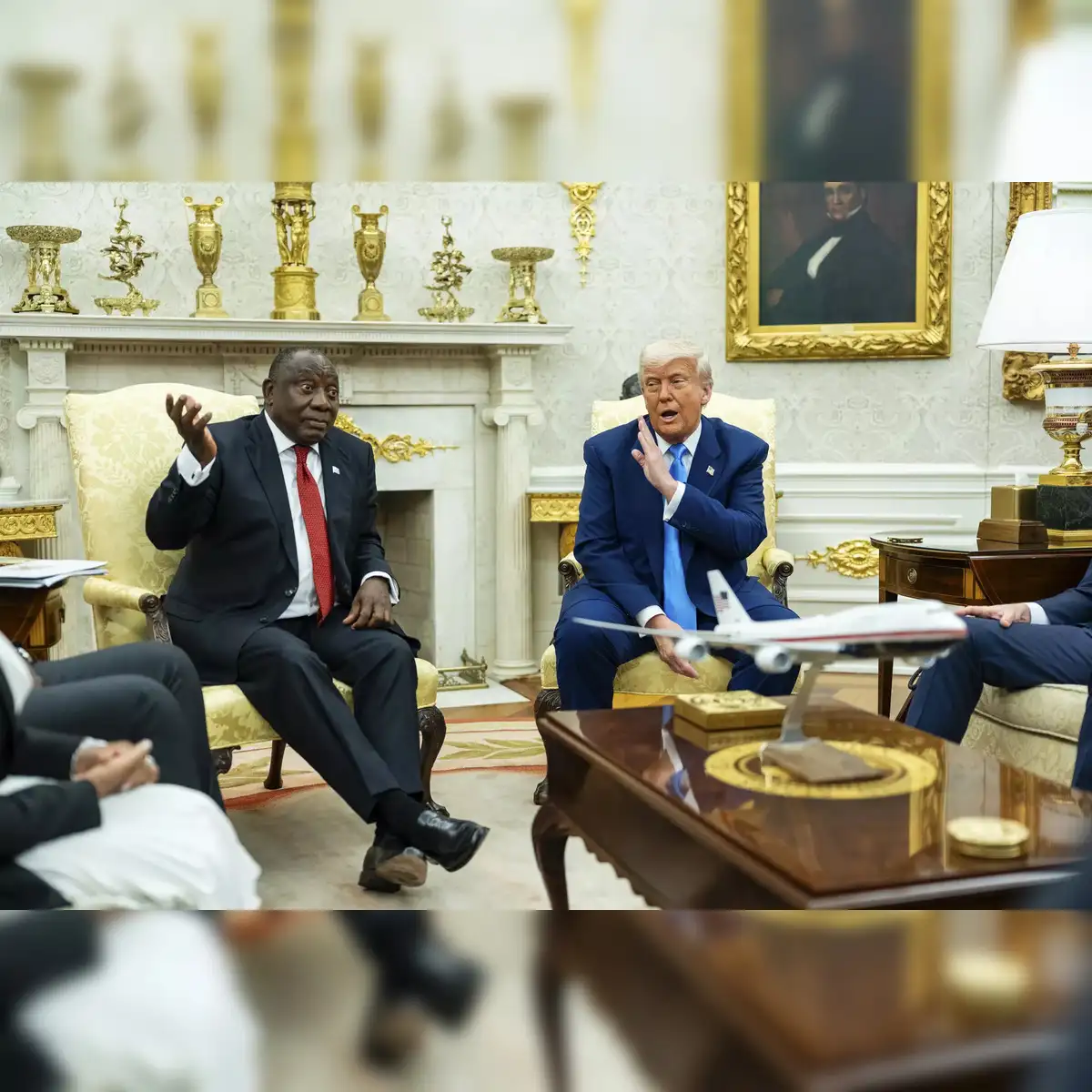
Looking ahead, South Africa faces the challenge of rebuilding trust and restoring a positive relationship with the United States. This will require not only clarifying the truth about internal challenges but also engaging with American leadership in a manner that fosters mutual respect and understanding.
For the U.S., confronting misinformation and baseless claims will be essential in maintaining credibility and effective diplomacy on the African continent.
The White House meeting between Ramaphosa and Trump will be remembered as a tense and pivotal moment reflecting the complexities of contemporary geopolitics.
It serves as a reminder that addressing global issues—whether they involve human rights, security, or economic cooperation—demands dialogue grounded in truth, empathy, and a commitment to shared values.
In summary, the confrontation between South African President Cyril Ramaphosa and U.S. President Donald Trump over false genocide claims epitomized the strained relations and diplomatic challenges faced by the two nations in 2025.
Trump’s persistence in pushing debunked conspiracy theories contrasted sharply with Ramaphosa’s measured and fact-based responses. The episode highlighted the real social and political issues confronting South Africa and underscored the necessity of honest engagement and accurate information in international affairs.
As South Africa seeks to move forward and strengthen ties with global partners, this meeting serves as a cautionary tale about the perils of misinformation and the importance of listening to the voices of those most affected by complex national challenges.
